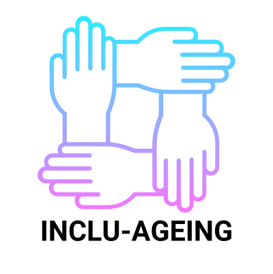The consortium of the Inclu-Ageing project finally finalized the Policy Recommendation Report (R5), as result of an analysis of the current European laws with the goal to support family members and legal guardians of ageing adults with disabilities. In fact, the research focused on the national, national and local legislations, following a multifaceted methodology, incorporating surveys, desk research, and the compilation of national reports.
Key stakeholders from various backgrounds, including physical therapists, social workers, special education teachers, psychologists, and policymakers, among others, were engaged through questionnaires and interviews. By gathering insights from diverse perspectives, the R5 aimed to identify both challenges and opportunities within the sector. In fact, the initial step involved identifying and clarifying the current status of services for ageing adults with disabilities. This includes understanding existing challenges, gaps, and areas for improvement.
Based on the analysis of alternatives, the R5 includes the most viable policy options from across the European Union that have the potential to enhance services for ageing adults with disabilities.
The effectiveness of the policy recommendation report is assessed based on the following criteria:
– Conciseness: The report is concise, focusing on key findings, recommendations, and actionable strategies.
– Readability: It is designed to be easily understandable by a wide range of stakeholders, including family members, legal guardians, experts and professional, and the general public.
– Accuracy: The recommendations are evidence-based and supported by robust research and analysis.
Given the diverse linguistic landscape of the European Union, the policy recommendation report is available in multiple languages, including Croatian, English, German, Greek, Italian, Polish, and Slovenian, as are the Toolkit the Parental Education Guidebook, the educational videos and the HUB. This ensures accessibility and inclusivity, enabling stakeholders from across the region to engage with the findings and recommendations.
The Policy report is available at this link.
Don’t forget to discover the related poster and the project Facebook page!

